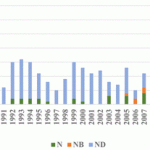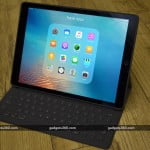/cdn.vox-cdn.com/uploads/chorus_image/image/66136814/acastro_180529_sonos_1777_0003.0.0.jpg)
In May, Sonos will stop providing software updates for its oldest products, and they’ll no longer receive any new features. The decision impacts “legacy” devices that are currently part of the company’s trade-up program, including all Sonos Zone Players, the Connect and Connect:Amp, the first-generation Play:5, the CR200 controller, and the Bridge. It’s important to note that with the Connect and Connect:Amp, this only applies to devices manufactured between 2011 and 2015. Newer hardware revisions will continue receiving updates.
“Without new software updates, access to services and overall functionality of your sound system will eventually be disrupted, particularly as partners evolve their technology,” Sonos warned in a blog post today. The company says customers can choose to either keep using these products after support ends — they should continue functioning in the near-term — or replace them with a modern Sonos product at a discount.
Last month, Sonos ran into criticism over its “recycle mode,” a software kill-switch that renders these legacy products inoperable whenever customers opt to participate in the trade-up program for a 30 percent discount on a current Sonos product. Sonos says recycle mode helps clear a device of user data and “protects unsuspecting people from buying legacy products that are approaching the end of their useful life.” Nothing about the program or recycle mode is changing today, and Sonos insists it takes this approach to encourage responsible e-recycling practices.
Sonos is again stressing that these products have been stretched to their absolute limit, noting that many of them — the oldest were introduced in 2006 — predate the iPhone and streaming music services altogether. Sonos has said it’s committed to providing software updates for five years after it last sold a device directly. The original Play:5, launched in 2009, is the only speaker on the list and thus becomes the first Sonos speaker to reach the end of the line for software support. Everything the company still sells today (including the aging Playbar) should have a long road of software updates to come.
Sonos tells me that beginning in May, it will introduce a way for customers who want to keep using their legacy hardware to separate those old products from their main Sonos system. You’ll want to do this splitting off step because once a device stops receiving updates, so does your entire Sonos system. Every speaker and other Sonos component in a system is meant to run the same software version to ensure they all work nicely together. But this is the first time that software support is ending, so some Sonos systems will get stuck on whatever software they’re running in May — unless customers quarantine the older gadgets into a secondary network. This software flow is still being developed, and Sonos doesn’t even mention that the option is coming on its FAQ page.
As I mentioned earlier, Sonos thinks legacy devices should all continue working even after software updates stop coming. But where the company foresees trouble is with streaming services. If a partner like Spotify makes an SDK change that calls for more powerful hardware, these older products might get left behind. The Play:5 at least has an aux input for external audio sources. But when the others eventually break, that’s it.
Today’s news is a significant inflection point for Sonos and to a wider degree the smart home. Well-built speakers can last forever, and Sonos prides itself on the quality of its products: the company claims that 92 percent of devices it has ever shipped remain in use today.
But computers never last forever.
“Every Sonos product has a microprocessor, flash memory, and other hardware components typically found in computers and smartphones,” the company wrote in its blog post. And those aging guts are why Sonos’ oldest products are finally hitting a wall. Making everything a computer means you’re stuck with the same longevity expectations as any other computer. That Sonos gear has a primary purpose of playing music — a task that seems simple — doesn’t change any of this. What comes next? Will the smart plugs or smart lights around our homes ever age out of software support? Will my Amazon Echo even work in 2025? Platforms like Alexa and HomeKit are meant to lessen the threat of obsolescence, but check back in another five years.
From Sonos’ point of view, it offers newer, better alternatives for everything being phased out in May. The Amp and Port have taken the place of the Connect products, and the second-gen Play:5 can still keep up with processing power demands. But some of the affected devices are meant to be invisible and just work. By issuing an early heads-up, Sonos is hoping to cause the least amount of headaches for customers. And it’s also going to continue pointing owners of legacy products toward the trade-up program; you’ll get a 30 percent discount for each of the listed devices you own.
[“source=theverge”]










